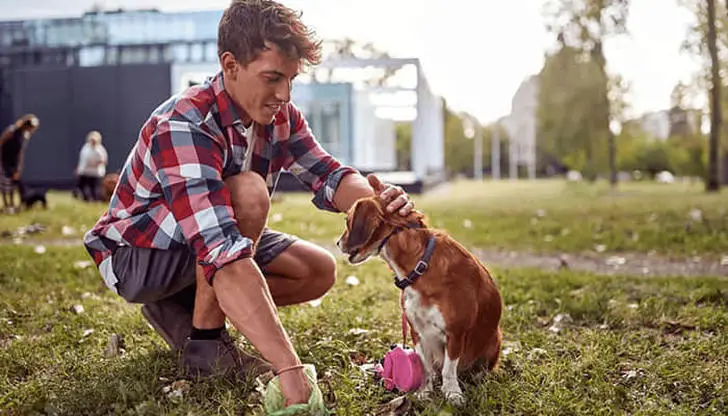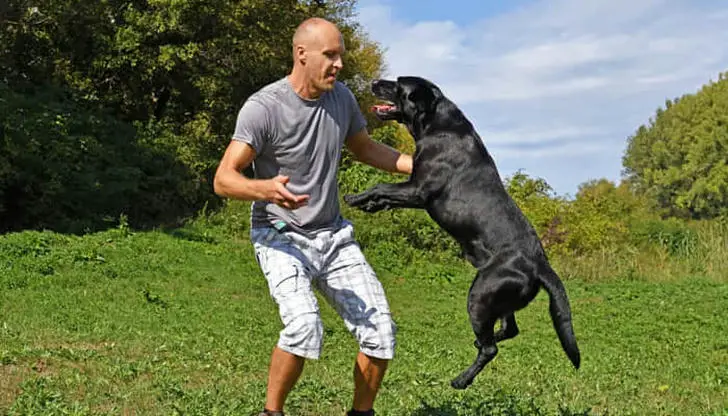Is Your Pet Trying to Tell You Something? Decoding Their Actions
Advertisement
As loving pet owners, we frequently encounter puzzling behaviors from our furry companions. From persistent barking and enthusiastic digging to their charming tendency to lean against us, deciphering these actions can strengthen our connection. In this article, we' ll delve into ten frequently asked questions about pet behavior, providing valuable insights and actionable advice. Let' s get started!

1. Why Does My Dog Bark So Much?
Barking is a natural form of communication for dogs. They may bark to alert you of danger, express excitement, seek attention, or even out of boredom. For example, if your dog barks every time the doorbell rings, it might be their way of saying, "Hey, someone' s here!" Understanding the context can help you manage excessive barking effectively.
2. What Does It Mean When My Dog Tilts Its Head?
Have you ever noticed your dog tilting its head when you speak? This adorable behavior often indicates curiosity or concentration. Dogs may tilt their heads to better understand sounds or sights, especially when they hear unfamiliar noises. It' s their way of saying, “I' m listening!”
3. Why Does My Dog Eat Poop?
If your dog has developed a habit of eating poop (known as coprophagia), you' re not alone—many pet owners face this issue. This behavior can stem from various reasons, including instinct, nutritional deficiencies, anxiety, or even learned behavior from other dogs.
There are several strategies you can implement to help curb this behavior effectively.
First, Consult Your Veterinarian: Always start by checking with your vet to rule out any medical issues or nutritional deficiencies that may be causing coprophagia.
Second. Use Commands and Distractions: Train your dog to respond to cues like "Leave it" to redirect their attention away from feces, rewarding them for positive behavior.
Third. Increase Exercise and Enrichment: Ensure your dog gets plenty of physical activity and mental stimulation to reduce boredom, which can lead to unwanted behaviors like eating poop.

4. How Can I Stop My Dog from Jumping on People?
Jumping can be a common issue when dogs are excited to see guests. To discourage this behavior, try ignoring your dog when they jump and only give attention when they have all four paws on the ground. For instance, if your friend visits and your dog jumps up, turn away until they settle down. Consistent training and rewarding calm behavior will help reinforce this positive change.
5. What Should I Do If My Dog Is Aggressive Towards Other Dogs?
Aggression towards other dogs can be concerning and requires careful handling. Training techniques that include desensitization and positive reinforcement can help manage this behavior. Consider consulting a professional trainer or behaviorist who can provide tailored strategies based on your dog' s specific triggers.

6. Why Does My Dog Sniff Other Dogs' Backsides?
This might seem odd to us humans, but it’s completely normal for dogs! Sniffing is a way for dogs to gather information about each other—like gender and health status—through scent. Think of it as their version of a handshake!
7. How Can I Tell If My Dog Has Separation Anxiety?
Separation anxiety is a common issue among dogs and can manifest in various ways. Signs include excessive barking or whining when left alone, destructive behaviors, urinating indoors, and clinginess when you are home. If you feel your dog is suffering from anxiety or loneliness, you can help your dog adjust to being alone by gradually increasing the time they spend apart from you, starting with short intervals and rewarding calm behavior during your absence, and designate a comfortable area for your dog with their favorite toys and bedding, and consider using calming aids like pheromone diffuser or anxiety wraps to reduce stress when you leave.

8. What Does It Mean When My Dog Leans Against Me?
If your dog leans against you, it’s often a sign of affection and a desire for closeness. However, in some cases, it may indicate insecurity or anxiety. For instance, if there’s a thunderstorm outside and your dog seeks comfort by leaning against you, they’re looking for reassurance.
9. How Do I Train My Dog to Stop Digging?
Digging can be frustrating for pet owners! To curb your dog's digging behavior, provide ample exercise and mental stimulation through daily walks, interactive play, and puzzle toys to alleviate boredom. Additionally, create a designated digging area in your yard, and reward your dog with treats and praise whenever they dig in that specific spot instead of unwanted areas.

10. What Are Common Signs of Stress in Dogs?
Stress in dogs can manifest through panting, pacing, excessive barking, hiding, or destructive behaviors. For example, if your usually playful dog suddenly becomes withdrawn during fireworks season, it might be feeling stressed by the loud noises. Identifying triggers and providing a calm environment can help alleviate your dog's stress levels.

Understanding pet behavior is key to building a strong bond with our furry companions. By addressing these common questions and applying the insights provided here, you’ll be better equipped to interpret your pet's actions and respond appropriately. Remember that every pet is unique; observing their individual behaviors will lead to a happier and healthier relationship! If you have more questions about your pet's behavior or need further assistance, don't hesitate to reach out to professionals who can help guide you on this journey together with your beloved pets!
